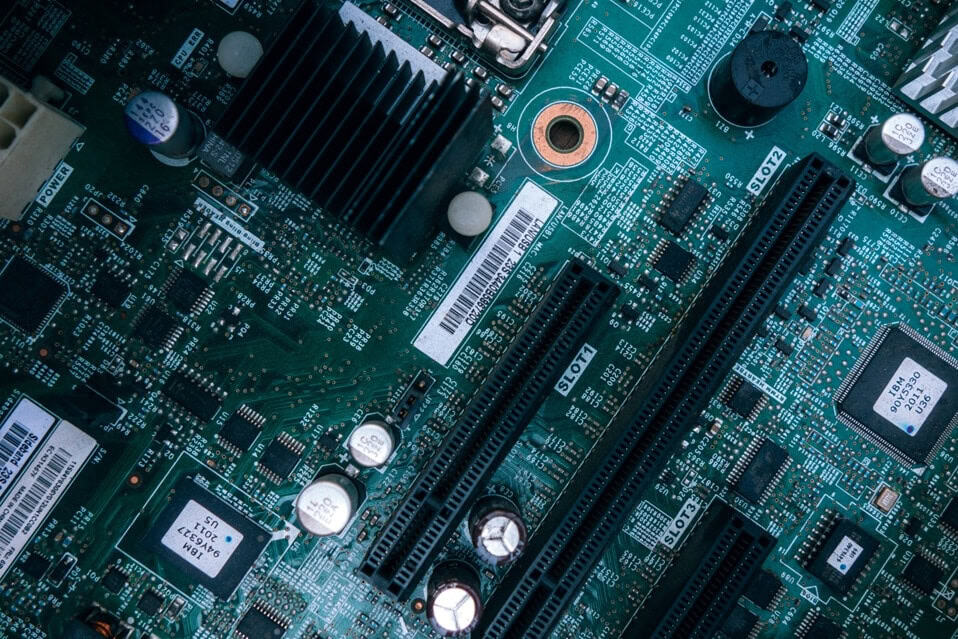Basics of Computer Science Made Easy!
Updated: April 15, 2025

If you’re reading this on your phone, tablet, or computer—you’re already benefiting from the power of computer science. But have you ever wondered what computer science really is, or what it would be like to study it?
It’s a question worth exploring. The job market for computer scientists and researchers is expected to grow by 26% between 2023 and 2033, according to the U.S. Bureau of Labor Statistics—much faster than the average for other careers. And that’s just one slice of the tech world.
In this article, we’ll break down the basics of computer science in a simple, easy-to-understand way so you can decide whether it’s the right path for you.

What is Computer Science?
Put simply, computer science is the study of how computers work. That includes everything from how they’re built (hardware), to the instructions they follow (software), to the theories behind how they process information.
As a computer science student—or someone considering the field—you’ll explore topics like algorithms, programming languages, problem-solving techniques, and how humans interact with machines.
If you’re someone who likes solving problems, thinking logically, and finding efficient solutions, computer science might be a great fit. It’s a field where curiosity, creativity, and critical thinking go a long way.
Key Fundamentals of Computer Science
Computer science might sound complex at first, but once you break it down, it starts to make a lot more sense. Here are a few core concepts you’ll come across early in your studies:
Input and Output
Input and output—often called I/O—are how computers communicate with the outside world. Input is any data or signal a computer receives, like typing on a keyboard or clicking a mouse. Output is what the computer gives back in response, like showing text on your screen or playing a sound.
Every program you use relies on input and output. Even something as simple as hitting “play” on a video involves I/O behind the scenes.
Processing
Processing is what happens between input and output. It’s how the computer takes your command, thinks about it (in its own way), and produces a result.
There are different types of data processing, including:
- Batch processing (handling large amounts of data at once)
- Real-time processing (responding instantly to inputs)
- Transaction processing (used in systems like online banking)
- Interactive processing (where you interact with the system as it runs)
Understanding how computers process data helps you write more efficient programs and build better systems.
Data Storage
Just like you store clothes in a closet, computers need space to store information. One main place they use is called RAM (Random Access Memory), which is fast but temporary.
RAM lets your device quickly access the data it needs to run programs, but it doesn’t keep that data once the device is turned off. That’s why saving your work or backing up files is so important—it ensures nothing is lost when the system shuts down.
Control Flow in Programming
Control flow is the order in which a computer carries out instructions. It’s like a step-by-step map that tells the computer what to do next.
There are different ways to guide control flow depending on the programming language you’re using. Some languages tell the computer exactly what to do at every step (called imperative languages), while others describe what the outcome should be, and the system figures out how to get there (declarative languages).
Mastering control flow is key to writing clean, logical code—and it’s something you’ll learn early on in any computer science course.
Is Computer Science Hard to Learn?
You might be wondering, Is computer science too hard for me? And honestly, that’s a totally normal question.
The truth is, computer science can be challenging—but it’s absolutely doable. Like any new subject, it takes time, practice, and patience. Some parts—like learning programming languages or debugging code—require attention to detail. But if you enjoy solving problems and sticking with things until they work, you’re already halfway there.
What helps most is having a genuine interest in how things work. You don’t need to be a math genius or a tech wizard to succeed—you just need to stay curious, ask questions, and keep at it.

What Can You Do With a Computer Science Degree?
One of the best things about studying computer science is how many different career options it opens up.
After graduation, you could work in software development, build mobile apps, design websites, or specialize in areas like cybersecurity or artificial intelligence. Some common job titles include:
- Web developer
- Mobile app developer
- IT project manager
- Systems architect
- Computer engineer
- AI engineer
- UX designer
As you go through your degree, you’ll get a better idea of what areas interest you most—and you can tailor your courses or projects toward those goals. Plus, computer science teaches you transferable skills like logic, teamwork, and technical communication that are valuable in almost any field.
Study Computer Science Online
If you’re excited about what computer science has to offer, you might be wondering how to get started—especially if you’re looking for a flexible, affordable way to earn your degree.
At University of the People, you can study computer science entirely online. We offer tuition-free associate’s and bachelor’s degrees, along with certificate programs designed to build real-world skills. You’ll learn everything from programming and algorithms to data structures and system design—on your own schedule, from anywhere in the world.
We also offer a Master’s in Information Technology, perfect if you’re looking to deepen your knowledge or move into leadership roles in tech. All of our programs are accredited, 100% online, and designed to help you succeed in the field of computer science.
FAQs
What are the basics of computer science?
The basics include how computers receive input, process data, store information, and produce output. You’ll also learn programming logic and algorithms.
Is computer science hard to learn?
It can be challenging at first, but it’s definitely doable. With patience, curiosity, and practice, you can build strong skills—even if you’re a beginner.
What jobs can you get with a computer science degree?
You can work as a software developer, web or app developer, UX designer, IT project manager, or even specialize in fields like AI or cybersecurity.
Do I need to be good at math to study computer science?
Basic math skills help, but you don’t need to be a math genius. Logical thinking and problem-solving are more important in most entry-level courses and jobs.
Can I study computer science online?
Yes! At University of the People, you can earn a tuition-free computer science degree entirely online, from anywhere in the world.

